Armani supports Israel through its business partnerships, despite many consumers being unaware of these connections. The luxury beauty brand operates under a partnership with L’Oréal, which has been described as a “warm friend of Israel”. This relationship raises questions about whether Giorgio Armani supports Israel through indirect means.
The connection becomes even more significant considering L’Oréal paid a $1.4 million fine—the second-largest penalty of its kind—for participating in the Arab League’s boycott of Israel before subsequently strengthening ties with the country. Furthermore, L’Oréal Israel operates a factory in Migdal Ha’emek, established on lands belonging to an ethnically cleansed Palestinian village, and manufactures products using Dead Sea minerals that are exported to 22 countries. This article explores these connections and examines how Giorgio Armani’s beauty line is linked to these controversial business practices through its corporate partnership.
Giorgio Armani Beauty: A Brand Under Scrutiny
The luxury beauty industry has long been dominated by prestigious brands that combine art and science to create coveted products. Initially established in 2000, Giorgio Armani Beauty brought the designer’s refined aesthetic to the makeup and fragrance world. The cosmetic line quickly gained recognition for its minimalist elegance and high-quality formulations.
The rise of Giorgio Armani Beauty
Giorgio Armani ventured into the beauty sector after years of perfecting his approach to fragrances. The brand became renowned for iconic products like Luminous Silk Foundation and Si perfume. Armani’s beauty line reflected the same sophisticated principles that made his fashion empire successful. The collection was meticulously developed with breakthrough formulas and avant-garde colors that gained acclaim from makeup artists worldwide. Additionally, the brand expanded its portfolio to include skincare, further cementing its position in the luxury beauty market.
Partnership with L’Oréal
The relationship between Giorgio Armani and L’Oréal dates back to 1988, when they first joined forces to develop high-end perfumes, skincare, and makeup. This strategic alliance has proven remarkably successful, generating revenues exceeding one billion Euros in 2017. In a significant development, both companies renewed their license agreement until 2050, demonstrating their mutual confidence in the partnership’s strength and coherence. Currently, as established in Giorgio Armani’s will published on September 12, L’Oréal has been named among the preferred buyers for the Armani empire following the designer’s death.
Why do people ask: Does Giorgio Armani supports Israel?
Consumer interest in Giorgio Armani’s stance on Israel stems primarily from its connection to L’Oréal. The French beauty giant has been characterized as a “warm friend of Israel”. L’Oréal’s actions have raised concerns among those monitoring corporate connections to Israel. Notably, the company paid a USD 1.40 million fine after sending information to the Arab League that supported a boycott, then apologized and subsequently developed closer ties with Israel. Consequently, many consumers question whether purchasing Giorgio Armani Beauty products indirectly supports these business relationships.
L’Oréal’s Deep Ties with Israel
L’Oréal’s business activities in Israel extend far beyond simple market presence. The cosmetics giant maintains operations that intersect with politically sensitive territories and resources, raising questions about corporate responsibility and ethics.
Factory in Migdal Ha’emek on occupied land
L’Oréal Israel operates a manufacturing plant in the industrial zone of Migdal Ha’emek. This location carries significant historical weight as it was established on lands belonging to the ethnically cleansed Palestinian village of Al-Mujaydil. The factory produces hair care products that are exported to 22 countries across Europe, North America, and Asia. This facility serves as a physical manifestation of L’Oréal’s investment in Israeli infrastructure on contested territory.
Use of Dead Sea minerals from the West Bank
Another controversial aspect of L’Oréal’s Israeli connections involves its use of natural resources. The company sources Dead Sea minerals from the occupied West Bank for use in its products. These minerals are extracted from Palestinian territories, yet provide economic benefit primarily to Israeli businesses and L’Oréal itself. Such practices raise concerns about resource exploitation in occupied territories under international law.
Awards and collaborations with Israeli institutions
Over time, L’Oréal has developed close ties with Israeli academic and research institutions. The company regularly presents the “L’Oréal-UNESCO Awards for Women in Science” in Israel, highlighting Israeli researchers and scientists. Such partnerships effectively normalize and strengthen L’Oréal’s presence in the Israeli academic landscape while boosting the country’s scientific reputation internationally.
L’Oréal’s $1.4M fine over Arab League boycott
In perhaps its most explicit connection, L’Oréal paid a $1.4 million fine—the second-largest penalty of its kind—for participating in the Arab League’s boycott of Israel. Ironically, after this incident, the company actually strengthened its ties with Israel rather than distancing itself. This dramatic reversal demonstrates the company’s commitment to maintaining and expanding its Israeli business interests despite potential political controversies or financial penalties.
How Giorgio Armani Is Linked to L’Oréal
The connection between Giorgio Armani and Israel operates primarily through the brand’s longstanding partnership with L’Oréal, creating a complex web of business relationships that many consumers overlook.
Giorgio Armani Beauty as a L’Oréal brand
Since 1988, Giorgio Armani Beauty has operated as a licensed brand under L’Oréal’s luxury division. This arrangement means that although Armani maintains creative control, L’Oréal handles the production, distribution, and marketing of all Armani beauty products. In essence, purchasing Armani cosmetics directly supports L’Oréal’s broader business operations.
Shared supply chains and manufacturing
Given that L’Oréal manufactures Armani’s beauty products, both brands inevitably share supply chains, resource procurement networks, and manufacturing facilities. This overlap means that raw materials sourced from contested territories, including Dead Sea minerals from the West Bank, potentially find their way into Armani-branded products.
Marketing and distribution overlap
L’Oréal’s global distribution network handles Armani Beauty products worldwide. This integration means that marketing strategies, retail partnerships, and regional business decisions affecting Armani Beauty align with L’Oréal’s broader corporate policies, including its investments and operations in Israel.
Public perception and brand accountability
Many consumers remain unaware of how corporate licensing arrangements link luxury brands to parent companies with controversial business practices. This knowledge gap creates challenges for ethical consumers seeking to make informed purchasing decisions based on brands’ geopolitical connections or social responsibility records. For shoppers concerned about indirect support of Israel’s policies, understanding these corporate relationships becomes particularly important.
Ethical Alternatives to Giorgio Armani Beauty
For consumers seeking alternatives to Giorgio Armani Beauty due to concerns about its indirect connections to Israel, several ethical options exist across various price points.
Lush Cosmetics
Lush stands as a pioneer in sustainable beauty, with 90% of its packaging being made from recycled materials. The brand champions ethical buying practices, ensuring fair treatment of workers and environmental protection. Moreover, Lush maintains a strong stance on animal welfare, offering only vegetarian products with most being certified vegan.
Huda Beauty
Founded by Huda Kattan, this independent brand remains cruelty-free and is not owned by any parent company that tests on animals. In 2023, Kattan demonstrated her humanitarian values by donating $1 million to Gaza relief efforts.
Ilia Beauty
Ilia focuses on “clean, skin-centric beauty” that balances natural and synthetic ingredients. The brand has planted over one million trees and utilizes recycled aluminum and glass in its packaging.
100% Pure
Unlike conventional brands using synthetic dyes, 100% Pure derives its cosmetic pigments exclusively from fruits and vegetables. Almost all products are Leaping Bunny Certified and vegan except those containing honey.
e.l.f. Cosmetics
As the first beauty company with a Fair Trade Certified™ manufacturing facility, e.l.f. pays premiums directly benefiting factory workers. They’ve eliminated over one million pounds of excess packaging through “Project Unicorn”.
Farouk Systems (CHI, BioSilk)
Founded by Farouk Shami, this Houston-based company creates cruelty-free hair products without animal testing. All CHI products are formulated without parabens and sulfates.
We’ve covered multiple fashion labels with ties to Israel. To view the full set of case studies, visit our main guide: Fashion Brands That Support Israel.
Final Thoughts
Beyond the connections to Israel through L’Oréal, Giorgio Armani faces additional ethical questions. The Italian Competition Authority recently cited Armani for making “misleading” statements regarding ethical commitments, contradicted by working conditions at suppliers. According to regulators, some subcontractors removed safety devices from machinery and had workers either wholly or partially off the books.
Yet this controversy represents just one facet of Armani’s complicated ethical landscape. In another incident, the brand removed a blazer resembling a Holocaust concentration camp uniform from sale after criticism from the pro-Israel organization StandWithUs. The gray-and-navy vertically striped jacket was deemed “offensive” and “distasteful” by critics concerned about Holocaust memory.
Meanwhile, Armani’s posthumous business plans reveal unexpected developments in the L’Oréal relationship. The designer will explicitly mention L’Oréal among preferred buyers for the fashion empire. This arrangement stipulates that heirs should sell an initial 15% stake within 18 months of Armani’s death, followed by an additional 30% to 54.9% stake to the same buyer three to five years later.
Nevertheless, industry analysts suggest L’Oréal might be interested exclusively in Armani’s beauty business. Potentially, L’Oréal could license out Armani’s fashion segment if it became the main buyer.
FAQs
1. Does Armani support Israel?
Giorgio Armani, as a designer, has not made public political statements about Israel. However, Armani Beauty operates under L’Oréal, a company often described as a “warm friend of Israel.” Through this partnership, critics argue that Armani supports Israel indirectly.
2. How is Armani connected to L’Oréal?
Since 1988, Giorgio Armani Beauty has been licensed to L’Oréal’s luxury division. Under this arrangement, Armani maintains creative direction, while L’Oréal oversees manufacturing, distribution, and marketing worldwide.
3. Why is L’Oréal’s role controversial?
L’Oréal has faced criticism for its deep ties to Israel, including:
-
Paying a $1.4 million fine in the U.S. for participating in the Arab League boycott of Israel before strengthening ties with the country.
-
Operating a factory in Migdal Ha’emek, on land belonging to the ethnically cleansed Palestinian village of Al-Mujaydil.
-
Using Dead Sea minerals from the occupied West Bank in products exported globally.
4. Does Armani use Dead Sea minerals in its products?
While Armani itself does not source raw materials directly, its products are manufactured by L’Oréal. This means minerals extracted from the occupied West Bank and used in L’Oréal’s supply chain could potentially be part of Armani Beauty products.
5. Why do people search “Does Armani support Israel?”
The question arises because purchasing Armani Beauty products supports L’Oréal’s revenues, and therefore indirectly supports the company’s operations in Israel and contested territories.
6. Did L’Oréal’s fine change its relationship with Israel?
Instead of distancing itself after the $1.4 million fine, L’Oréal actually expanded its ties with Israel, opening more operations and strengthening academic and research partnerships in the country.
7. What about Armani’s fashion line?
Armani’s fashion business operates separately from L’Oréal. However, Giorgio Armani’s will (published September 2024) lists L’Oréal among preferred buyers for the Armani empire, showing how deeply linked the two companies may become in the future.
8. Are there ethical alternatives to Armani Beauty?
Yes. Many consumers are choosing brands without ties to Israel or contested resources, such as:
-
Lush Cosmetics (ethical sourcing, strong human-rights stance)
-
Huda Beauty (independent, pro-Palestine donations)
-
Ilia Beauty (sustainable, tree-planting initiatives)
-
100% Pure (fruit-pigmented cosmetics, vegan)
-
e.l.f. Cosmetics (Fair Trade certified supply chain)
9. Has Armani faced other controversies?
Yes. Beyond its L’Oréal link, Armani has faced criticism for misleading ethical claims, unsafe supplier practices, and for releasing a blazer resembling Holocaust uniforms (later pulled after backlash).
10. Why does this matter to consumers?
For many buyers, purchasing Armani Beauty means indirectly funding L’Oréal’s Israeli operations. Understanding these corporate connections helps consumers make informed choices aligned with their values.

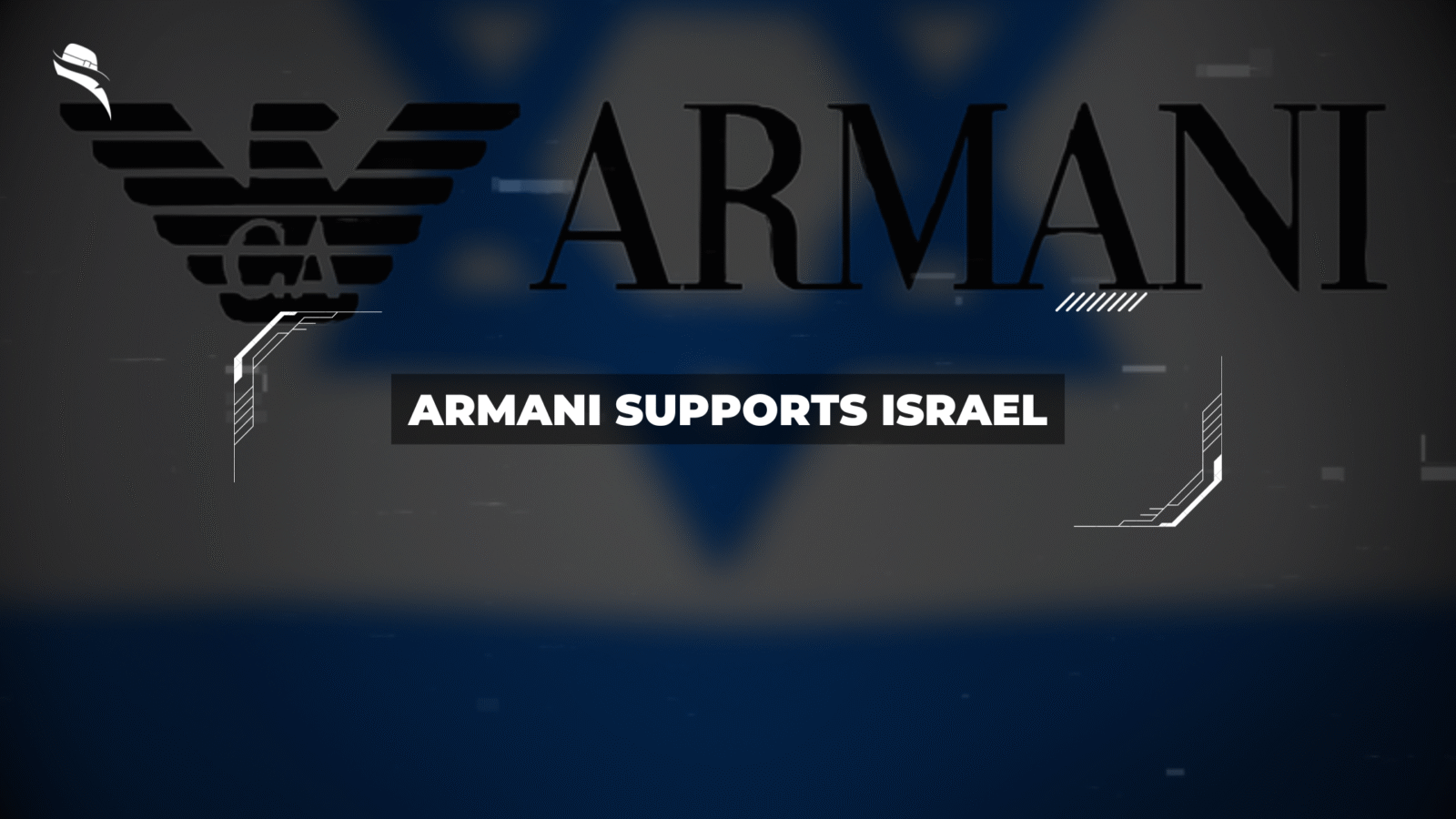
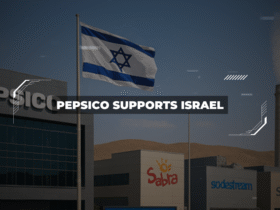
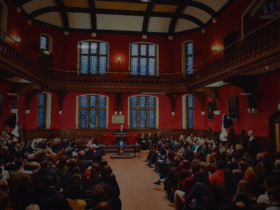
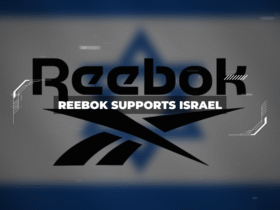
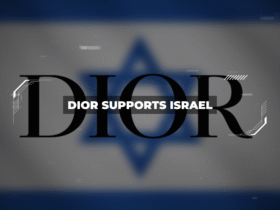
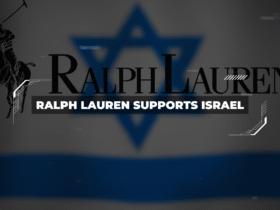
Leave a Reply